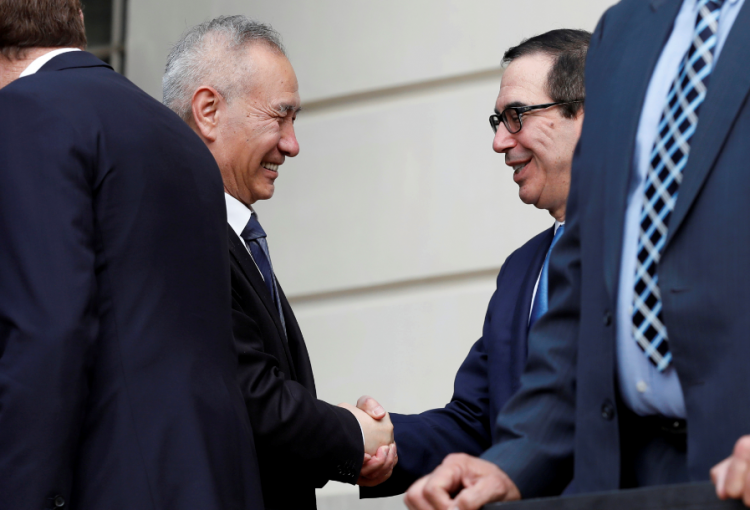Phase One of a partial "trade deal" announced to great fanfare by President Donald Trump offers no specifics and will remain an "uncertain arrangement at best," warns multinational investment bank and financial services company Morgan Stanley.
Trump on Oct. 11 loudly boasted about "phase one" of what he claims is a larger trade deal in the making with China. As part of phase one, the U.S. won't impose a tariff increase planned for this Tuesday. The U.S. was set to raise tariffs on about $250 billion worth of goods on October 15 to 30% from 25%.
For its part, China will purchase between $40 billion and $50 billion in U.S. agricultural products, according to Trump's unverified claims.
Trump said there isn't a formal, written deal and the specifics of the verbal "deal" have still to be hammered out. No formal deal has been signed -- and might never be given the many failed "deals" of the past announced by Trump.
Trump said he hopes a formal deal will be had in November and failing that in the succeeding months. He claims the first phase of the trade deal will be written over the next three to five weeks.
The vagueness of the "deal," whose existence rests solely on Trump's word, is sparking skepticism among financial experts worldwide.
Some of these experts point to Trump's outright lie in August when he said he received phone calls from China saying the Chinese were ready to make a great deal. China later said it had made no such phone calls. Trump's aides cited by U.S. media later admitted Trump lied when he said he received these calls.
Morgan Stanley said that without a durable trade dispute settlement mechanism in place, another round of tariff increases can't be ruled out.
"There is not yet a viable path to existing tariffs declining, and tariff escalation remains a meaningful risk," said the bank in a note to its clients. "Thus, we do not yet expect a meaningful rebound in corporate behavior that would drive global growth expectations higher."
U.S. global independent investment banking advisory firm Evercore Inc. told its clients the first phase of the trade deal doesn't give global corporations enough clarity to decide on where to invest, produce hire or source. If Trump maintains his "stop the China rise" mentality perspective, the trade war will continue, said Evercore.
Evercore affirms Trump's statement, 'We are near the end of the trade war' is not plausible to us. We do not expect tariff cuts in 2020 -- but are ready to be favorably surprised.
"And as long as such punitive tariffs remain, we would describe US-China economic relations as bad, not good."
Evercore said it expects a delay in the imposition of the 30% tariffs on China and no additional tariff hikes in 2020.
On a more optimistic note, U.S. multinational investment bank and financial services company The Goldman Sachs Group, Inc., sees a 60% chance the announced 15% tariffs will take effect. But it does expect a delay until early 2020 as opposed to the current deadline of Dec. 15.






